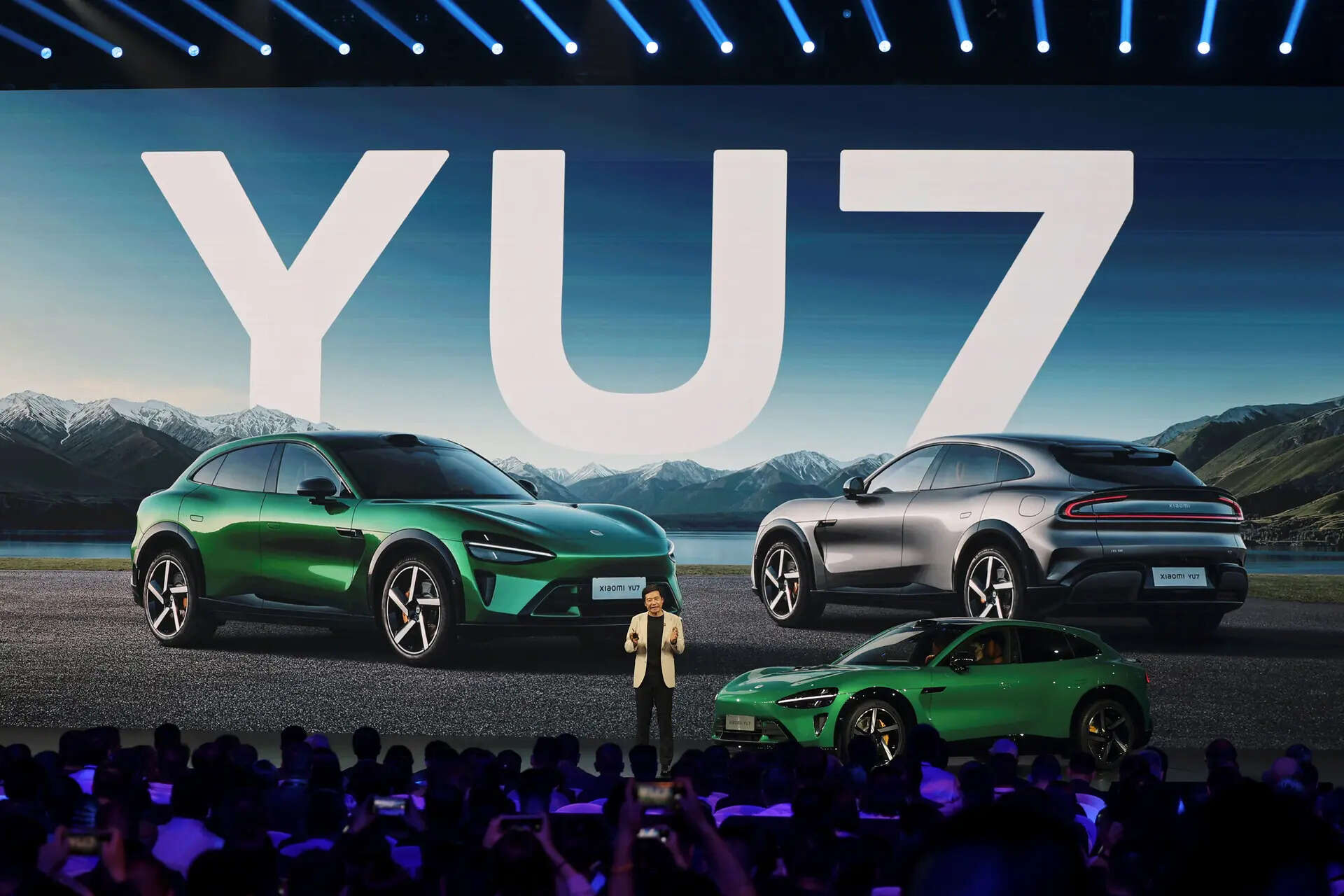Xiaomi's New EV Surpasses 289K Orders in Just One Hour: A Major Disruption in the Automotive Market, ET Auto
China's Xiaomi has emerged as a serious challenger in the automotive world—where even tech behemoth Apple failed to gain traction. The newly launched SUV secured 289,000 orders within an hour, eclipsing the debut numbers of its sedan.

Tech-to-auto crossover stories often end in stumbles, but Xiaomi Corp. is rapidly rewriting that narrative. With its second electric vehicle (EV) now on the road and a growing footprint in China’s premium EV segment, Xiaomi has emerged as a serious challenger in the automotive world—where even tech behemoth Apple failed to gain traction, Bloomberg reports.
At a recent launch in Beijing, Xiaomi founder and CEO Lei Jun introduced the company’s long-awaited SUV—its second EV after the SU7 sedan launched in March 2024. In a not-so-subtle nod to Apple’s abandoned car ambitions, Lei declared that Xiaomi would offer seamless integration for iPhone users, underscoring the company's ability to build a smart mobility ecosystem that leverages its tech DNA.
The newly launched SUV secured 289,000 orders within an hour, eclipsing the debut numbers of its sedan. Starting at 253,500 yuan (approx. $35,000), it directly competes with Tesla’s Model Y, while the SU7 sedan starts at 215,900 yuan. With these launches, Xiaomi is not just a smartphone company venturing into mobility—it’s now one of the most-watched new entrants in the global EV industry.
Xiaomi's successful entry is as much about timing and strategy as it is about market context. Unlike Apple’s ill-fated Project Titan, which spent over a decade aiming for full autonomy, Xiaomi focused on realistic, consumer-first EVs. It entered the world’s largest EV market—China, with a supportive policy ecosystem, developed charging infrastructure, and a rich talent pool.
Lei Jun’s approach was grounded and ambitious: he assembled a dream team of auto veterans from Geely, BMW, SAIC-GM-Wuling, and Magna Steyr, and invested over $1.6 billion across 100+ EV component suppliers. Unlike rivals Nio and Xpeng, Xiaomi chose not to outsource production. Instead, it built its own manufacturing facility and secured its supply chain, informed by lessons from its early smartphone struggles.
From smartphones to steering wheels
Xiaomi’s strength lies in its brand loyalty. Known for its “Mi Fans,” the company has extended its user-first design philosophy to its vehicles, focusing on intelligent features, affordability, and connected experiences. Nearly 50 per cent of SU7 buyers reportedly choose the car without comparing it to others, and there is growing anecdotal evidence of parents buying the model for their children, citing safety and quality.
However, Xiaomi’s EV production remains boutique in scale. It targets 350,000 units in 2025, a sliver of BYD’s 4.3 million units or Toyota’s 10.8 million. The company currently lacks a sub-₹20 lakh ($20,000) offering, which dominates the volume market in China and where BYD has a commanding presence. Analysts warn that without expanding its model lineup, Xiaomi could face the same limitations as Tesla—strong brand appeal but slow volume growth.
A recent fatal accident involving the SU7 also drew scrutiny, particularly around the car’s advanced driver assistance systems (ADAS). While Xiaomi maintained a low profile post-incident, consumer confidence in the brand appears undeterred, with strong sales continuing.
Xiaomi’s auto division, which is expected to turn profitable by the second half of 2025, has helped the company post record Q1 revenues this year. According to UBS China autos analyst Paul Gong, tech companies with hardware experience—like Xiaomi—are proving more adept at scaling in the EV space than those with purely software roots.
“Xiaomi is a latecomer,” Lei Jun acknowledged on Weibo. “But in a market shaped by innovation and driven by technology, there’s always room for the right kind of disruptor.”
In a crowded and cutthroat EV arena, Xiaomi is proving that tech know-how, if applied wisely, can indeed put wheels on the ground—and rivals on notice.








_1751880097.jpeg)




